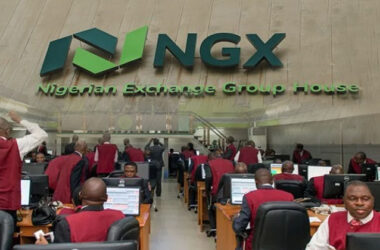Nigeria, a country abundantly blessed with oil, is once again grappling with a crippling fuel scarcity that seems to have no end in sight. This perennial problem, which has become an unfortunate hallmark of Nigeria’s economic woes, continues to inflict severe hardship on the population, disrupt businesses, and undermine confidence in the government’s ability to manage the nation’s resources effectively.
The current wave of fuel scarcity is not an isolated incident but a symptom of deeper structural issues within Nigeria’s oil and gas sector. Despite being Africa’s largest oil producer, Nigeria continues to import the majority of its refined petroleum products due to the dysfunction of its local refineries. Decades of mismanagement, corruption, and lack of investment in refining capacity have left the country dependent on imports, which are vulnerable to global market fluctuations and supply chain disruptions.
The situation is further complicated by the government’s handling of fuel subsidies. While subsidies are intended to make fuel affordable for the average Nigerian, they have also created an environment ripe for corruption and inefficiency. The removal of subsidies, although necessary for fiscal sustainability, has led to sharp increases in fuel prices, making it more expensive and difficult for Nigerians to access the fuel they need.
The ongoing scarcity has far-reaching effects on daily life in Nigeria. Long queues at petrol stations have become the norm, with motorists spending hours or even days trying to secure fuel. For those who rely on fuel for their businesses—whether they are transport operators, small-scale manufacturers, or power generators—the impact is even more devastating. The scarcity drives up operational costs, reduces productivity, and often forces businesses to close, leading to job losses and further economic strain.
For the average Nigerian, the consequences are severe. The rising cost of fuel has led to increased transportation costs, which in turn drives up the price of goods and services. This creates a vicious cycle of inflation that erodes purchasing power and pushes more Nigerians into poverty. The situation is particularly dire for those living in rural areas, where access to fuel is even more limited and prices are often higher.
The government’s response to the crisis has been largely reactive and insufficient. While officials have repeatedly assured the public that measures are being taken to address the scarcity, these promises have often fallen flat. Temporary fixes, such as releasing emergency fuel supplies or issuing ultimatums to marketers, do little to address the underlying issues that cause these shortages in the first place.
Furthermore, the lack of transparency and accountability in the management of the oil and gas sector continues to undermine public trust. Nigerians are left questioning why a country with such vast oil wealth cannot guarantee a stable supply of fuel. The perception of incompetence and corruption only deepens the frustration and despair felt by the population.
To truly resolve the issue of fuel scarcity, Nigeria needs to embark on comprehensive reforms in its oil and gas sector. This includes revitalizing the country’s refineries to reduce dependence on imports, implementing more transparent and efficient subsidy policies, and fostering a competitive market environment that encourages investment in local refining and distribution infrastructure.
In addition, there must be a concerted effort to diversify the economy away from its overreliance on oil. Developing alternative energy sources and investing in other sectors can reduce the country’s vulnerability to oil price fluctuations and create a more resilient economy.
The ongoing fuel scarcity is not just an economic issue; it is a crisis of governance. Nigerians deserve better than a cycle of shortages and price hikes that have become all too familiar. It is time for the government to demonstrate real leadership and take bold steps to address the root causes of this problem. Without decisive action, the cycle of fuel scarcity will continue, and with it, the suffering of millions of Nigerians.
In conclusion, the current fuel scarcity highlights the urgent need for reform and accountability in Nigeria’s oil and gas sector. The country’s leaders must move beyond empty promises and take concrete steps to ensure a stable and affordable fuel supply for all Nigerians. The time for half-measures has passed; what is needed now is a comprehensive strategy that addresses both the immediate crisis and the long-term challenges facing the sector. Only then can Nigerians hope to see an end to the fuel scarcity that has plagued the nation for far too long.









